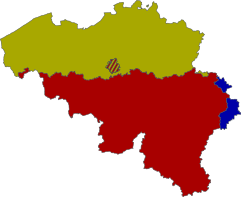
” I don’t have the time” is the most used sentence I hear when I speak to people who are interested to learn a new language but they don’t do it because apparently they don’t have time…
I understand, most people who have a fulltime job (with or without kids), or fulltime moms, etc… don’t want to spend their only me-time of the day on studying…
But what if I say you don’t necessarily have to sit in front of a desk with a boring textbook to learn a language?
Believe it or not, I learned the most by doing daily activities.
Now I hear you say “What? by doing daily activities? what do you even mean?”
I will explain, but first I have a few questions for you.
● Do you often listen to music?
● Do you watch movies/series?
● Do you read books?
● Do you waste most of your time on socal media? (Youtube, Tiktok, Instagram, Twitter…)
● Are you doing some type of exercise? (Running, walking, biking, gym)
Well then you can surely make time to use and practice languages.

Listen to music in the language you are interested in, watch movies with subtitles (first subtitles in your mother tongue, when you are more advanced you use subtitles in the language itself and after a while maybe you won’t need any subtitles anymore…)
Read books, articles on topics you like…
You can start with very easy texts, like children’s books for example.
Or use bookbox.com , a platform where you can watch cartoons with subtitles and you also have the scripted text.
Write down every new word you learn, review it whenever you can.
Do you spend a lot of time on YouTube? use it to practice a language.
There are a lot of people who make videos to learn others their language (and it’s for free!!)
There are also lot of channels where you can watch children’s cartoons with subtitles
and another channel I recommend you to visit is “easy languages”
when you are more advanced watch vlogs in the language you’re interested in or watch the same type of videos you normally watch but in that language instead.
Watch things you’re interested in, so you don’t lose concentration…
and here again, try to write down as much as possible important words or expressions you hear…
You will hear a lot of the same words and expressions, after a while you’ll start to remember them and you’ll automatically start to understand more and more.
But you have to practice the things you learnt.

Flashcards
Did you ever heard of Anki or Quizlet?
Those are programs where you can study a subject or a language by using flashcards, and it has been proven by many students that this method of “studying’ is way more effective tan traditional study.
Spaced repetition is a very effective way to remember things. If you review your flashcards daily, you will see results for sure!
And the good thing is, you don’t need to spend a lot of time on it.
Do you take your phone with you everywhere you go? Even in the bathroom?
I bet you do!
So, every time you have 5 minutes (waiting for the train, waiting at the doctors office, waiting on a friend, sitting on the toilet,…) instead of scrolling on social media, use it to review your flashcards!!!
Every word, expression, sentence you learnt? put it in Anki make a flashcard of it and there you go, review it every day.
5 to 10 minutes a day seems nothing but if you do it every day, it WILL make a difference.
Comprehensible input (LingQ)

One of the most effective programs I know to practice a language is LingQ for sure.
It is a “reading” program with audio and a built in dictionary/translator
There are countless texts to choose from, so you can find texts that you are interested in to make the learning process more fun.
The main focus here is listening and reading (2 of the most important skills to learn a language)
A fun feature is that it keeps track of every word you know so you can actually see the number of words you already know f.e. 2350 words.
If you want to know more about LingQ you can visit the website or you can find man reviews on the internet or on Youtube by searching “Steve Kaufmann” the founder of this program.
If you find the time to use LingQ daily, even if its only for 10 minutes, you will make a lot of progress without a doubt.
Speaking to natives
to end this article I want to tell you one more thing. The only thing that will make you really fluent in a language is speaking to native people..

You can’t become fluent if you never speak the language.
So find people in your neighbourhood, on facebook, instagram, you name it… and talk, talk, talk!
It is 1000% more effective than studying out of a notebook and reciting boring sentences, and it is more fun!!
So read, speak, write, practice and repeat!
If you really want it, you will find the time.





 The chapters are very easy to browse through.
The chapters are very easy to browse through.







